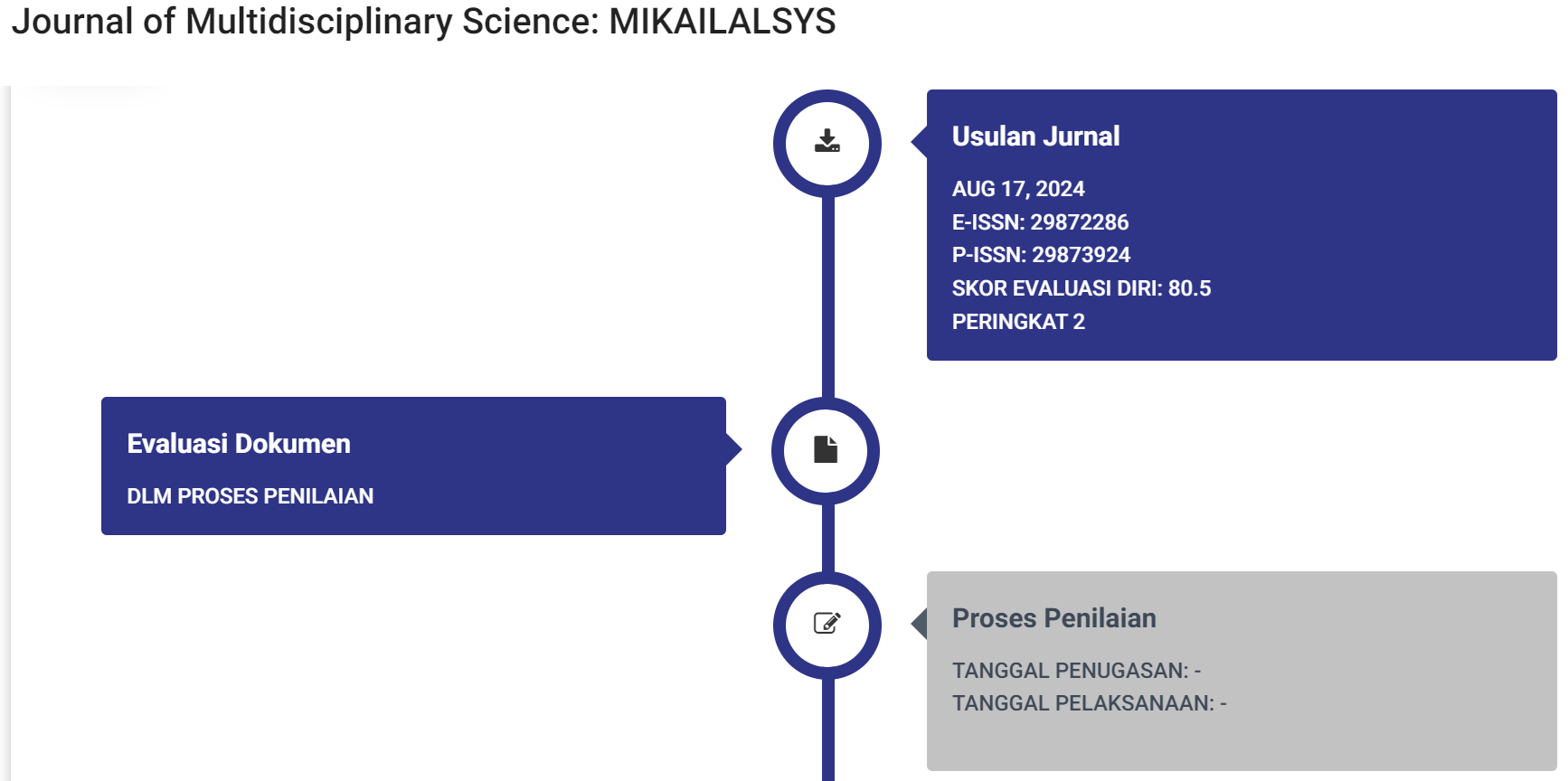Intelligent Recycling Facilities with IoT Sensors and Data Analytics for Environmental Justice and Sustainable Materials Processing in Low-Income Areas
 Digital Object Identifier:
10.58578/mikailalsys.v2i3.3827
Digital Object Identifier:
10.58578/mikailalsys.v2i3.3827
Please do not hesitate to contact us if you would like to obtain more information about the submission process or if you have further questions.

Abstract
This research seeks to transform waste management in low-income communities like Nigeria by introducing intelligent recycling facilities equipped with IoT sensors and data analytics. These innovative facilities will optimize recycling processes, monitor material flows, and provide valuable insights on waste reduction and environmental impact. The goal is to address the pressing issue of waste production, which has become a significant concern in developing nations due to rising food consumption and population growth. In Nigeria, inadequate waste collection and disposal methods have led to environmental pollution and health crises. The common practice of dumping garbage on roads has resulted in unsightly piles of refuse, hindering the nation's beauty. To combat this, we propose the adoption of sustainable smart bins with efficient IoT applications. These smart bins will provide a futuristic solution for waste management, enabling remote monitoring and optimization of waste levels. The benefits of this IoT-based system include (1) Remote access for efficient level control (2) Improved time and energy efficiency (3) Reduced congestion in waste bins. By developing a low-cost, intelligent waste bin system with IoT technology, we can create a green and clean atmosphere within cities. This innovative approach will inform policy and practice, advancing environmental justice and sustainable development in marginalized areas.




Citation Metrics:

Downloads

Authors retain copyright and grant the journal right of first publication with the work simultaneously licensed under a Creative Commons Attribution-NonCommercial-ShareAlike 4.0 International License that allows others to share the work with an acknowledgement of the work's authorship and initial publication in this journal.

























